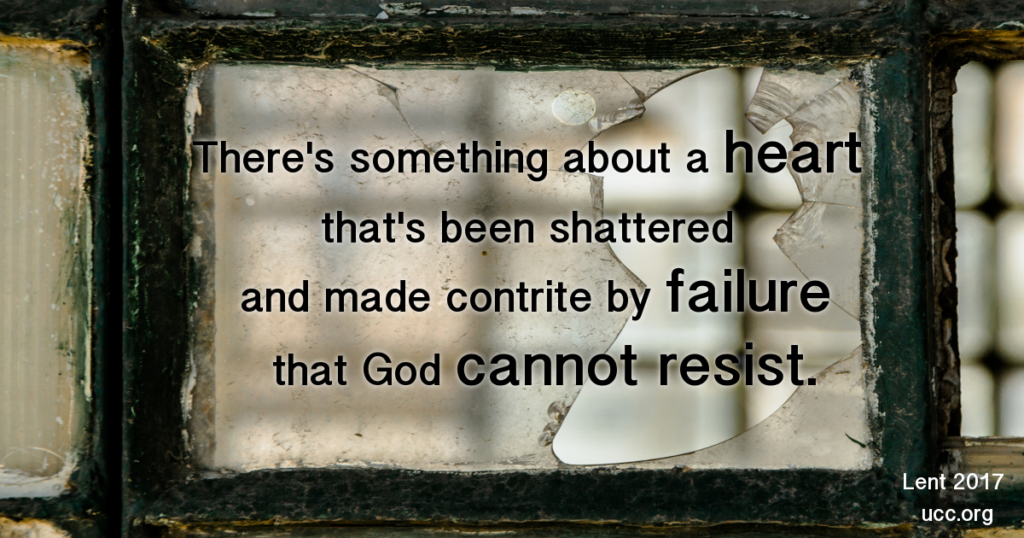Always Contrite
 “You will not turn away, O God, from a broken and contrite heart.” – Psalm 51:17
“You will not turn away, O God, from a broken and contrite heart.” – Psalm 51:17
The psalmist says that God will not spurn a contrite heart, but he might just as truthfully say that God cannot turn from such a heart. There’s something about a heart that’s been shattered, opened, rendered contrite and pliable by failure that God cannot resist.
If that’s true, it makes me think it’d be a good thing to adopt contrition as a way of life, not just an occasional shamed response to a particular sin committed. The best heart to have would be an always contrite heart.
Not a heart always wallowing in guilt, mind you. Not a perpetually self-abasing or gloomily self-loathing heart. No wailing, breast-beating, or sackcloth and ashes. Just a heart that isn’t shocked by its own mistakes, but assumes them as a baseline human fact. A heart that, in a mysterious way of speaking, welcomes frailty as a God-magnet. A heart that knows failure is one of the best friends the soul could have.
Sr. Joan Chittister says we would do well to embrace the “sanctifying character of our mistakes.” To resist is to miss a mystery, and a biblical truth—our sins may make us holier than our virtues ever will.
An aware heart always on its knees, always truthful about its lack, always surrendered to what Mark Heim calls ‘the vast accomplished grace around us,’ and therefore always intimately accompanied by the Mercy within mercy inside mercy who is God—that’s the joyous life the penitent psalmist prays for. It’s the life I pray for too.
And you?
Prayer
Break my heart with your great mercy, O God, and be always near my always broken heart.
 About the Author
About the AuthorMary Luti is a long time seminary educator and pastor, author of Teresa of Avila’s Way and numerous articles, and founding member of The Daughters of Abraham, a national network of interfaith women’s book groups.
